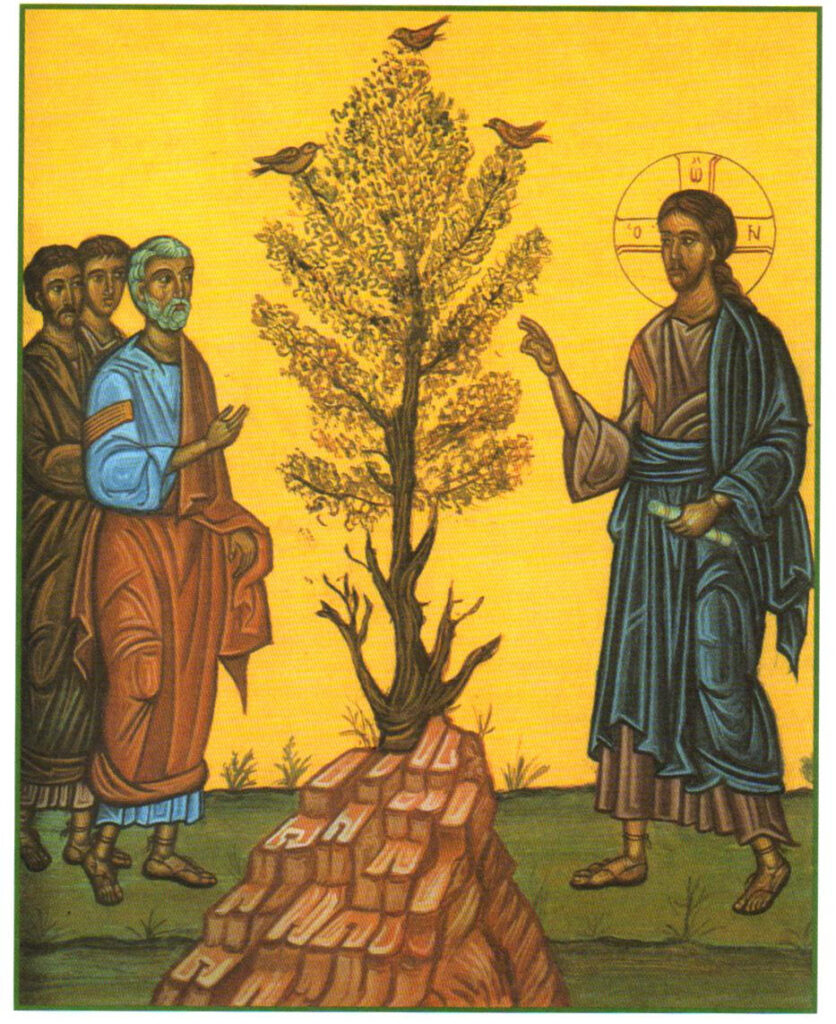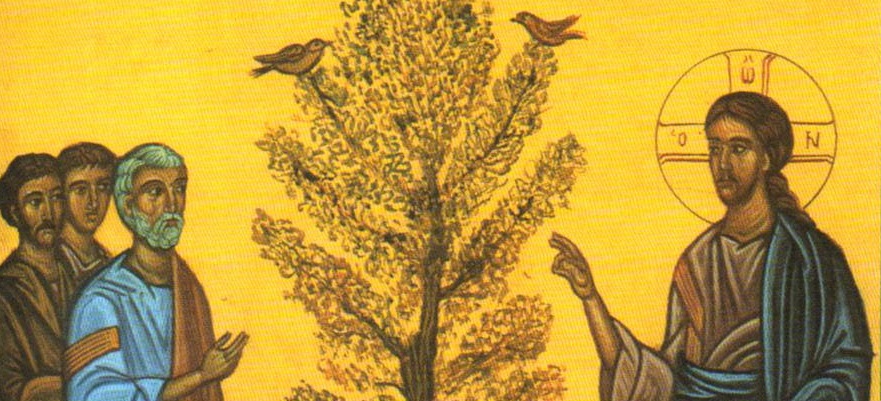Faith vs. Hope
Scripture Readings

Have you ever heard someone say, “We all prayed so hard that she’d get better, but she just kept getting worse?” Or, how about, “I prayed so hard that I’d get it, but I didn’t?” Maybe you’ve said something like that yourself. In a similar vein, have you ever been disappointed by way your prayers were answered…or weren’t answered? Have you ever said extra prayers for some special reason? Maybe you’ve said a rosary or two, or a novena, or attended extra Masses in hopes that God would address your need? I think we’ve all done these things, especially when we were young.
And what did you feel like when you didn’t receive what you were praying for? Did you think that maybe you didn’t pray hard enough? Did you maybe think that God was ignoring you? Or perhaps it felt like you were praying into a vacuum and there was nobody there to hear you. This morning’s gospel reading suggests that a misunderstanding of the nature of faith itself lies at the root of all these attitudes. As always, the issue doesn’t lie with God or God’s relationship to us. The issue lies in our understanding of what faith is and how it works.
Most people confuse faith and hope. The way people have translated the Scriptures over the centuries has only made the confusion worse. The theological virtue of faith is not synonymous with trust. Trust is the definition of the theological virtue of hope. When we say, “I have faith that God will do…whatever,” what we’re really saying is, “I hope God will do such and such.” Despair is giving up hope, not faith. What then is faith? Faith is the belief in something beyond our senses, beyond our intellect, and even beyond our experience. Faith is trusting that something is true despite all evidence to the contrary. Faith is easily misplaced. Just look around. But faith in God’s existence, God’s love and mercy, is never misplaced. Consider Jesus’s experience of faith. He set out on his third and last pilgrimage to Jerusalem for the Passover knowing what was awaiting him: betrayal, suffering, and death. Did he know what would follow? Was he aware of the resurrection? We’ll never know for sure. We do know that he prayed that the cup of sorrow would be taken away from him, and we do know that he prayed Psalm 22 on the cross, “My God, my God, why have you abandoned me?” That is the essence of faith—that he did what he needed to do, regardless.
When the disciples in today’s gospel said to Jesus, “[Lord,] increase our faith,” they were asking for more. But Jesus replied, in effect, “You don’t need more faith, you need a deeper faith. Like a mustard seed, faith needs to germinate and send out deep roots into that reality you can’t see or hear or smell or touch or taste. You need to be so firmly rooted in your commitment to your God that nothing—no disappointment, no evil, no suffering, not even death—can shake you from it.
The difference between our experience of faith and our experience of hope can be distilled down to one single factor: and that is our expectations. With hope, we live in expectation. We trust that God’s promises to us will be fulfilled. We expect that our prayers—offered in faith—will be answered by our faithful God, even when the answers don’t match our preconceived notions of what those answers should look like. Even when the answer is delayed, we trust that God in his love and mercy will do what’s best for us and of our world.
Faith, on the other hand, has no such expectations. Faith has no preconceived notions of what should be. Therefore, faith can never leave us disappointed. We live by faith in the security that God always has our back regardless of appearances. We don’t deserve God’s love; we can’t win or lose God’s love. God can’t love us more than he already does. We can’t buy God’s favor. That’s where faith comes in. Prayer and spiritual devotions change us. They make us more aware and more sensitive to God’s presence in our lives. They help us become more deeply rooted in faith—that is, the conviction that God loves us so much that he revealed the resurrection by coming among us as one of us and accepting our death as his own.
If you do have great faith that is deeply rooted in prayer, then you will abide in the acceptance that your hope—your expectations—will turn out for the best, regardless of the outcome. You’ll surrender peacefully to the will of the Father. You’ll get better—even miraculous—results by deepening your connection to God through faith rather than by doing more—more prayer, more devotions, more service. Like the parable demonstrates, we do what we need to do to stay connected God and our fellow women and men. And that, in itself, is the reward of faith. We offer service not out of any other expected reward or benefit, but because we have faith in a God who loves and cares for us. “When you have done all you have been commanded, say ‘We are unprofitable servants; we have done what we were obliged to do.’”
Get articles from H. Les Brown delivered to your email inbox.
